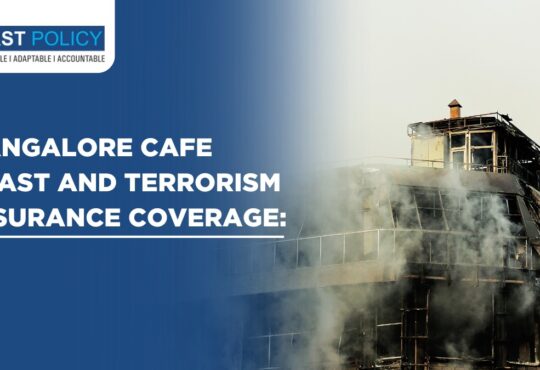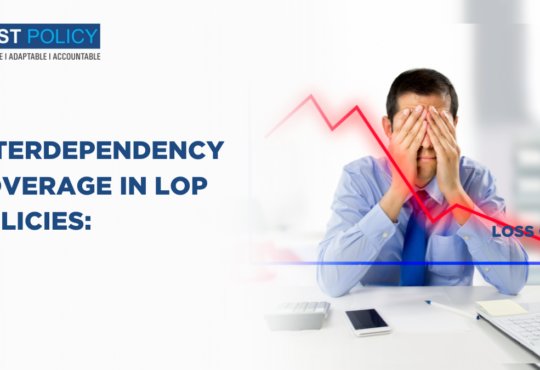
Navigating Liability Insurance in Shipyard’s Industry
In a product manufacturing company, liability insurance plays a major role. The shipyard is also a part of such manufacturing company. If a client buys a ship, it is the duty of the shipyard company to provide the necessary insurance to the client in case of any mishap happening to the ships while building it or repairing it. Also, there are other insurances targeted mainly at the workers taking part in the building process of the ship in case of any accident or injury caused to them. The process of building a ship is not very easy. It requires a good number of human resources and technical management. There are several risks involved in the construction of ships. In this article we will know about the various risks and different types of insurance coverage included in the shipyard company. Also, we will discuss the various risks that are to be covered under liability insurance for shipyards.
What are the different risks involved in a shipyard?
As we know, shipyards are mainly present near larger water bodies such as seas or oceans for the apparent reason of making the water available for the ship to travel or for testing the ship. Several pieces of equipment are required for the construction, maintenance, or repair of these ships. Also, there must be some safety measures present for risk management in case of accidents.
Today’s shipping industry is facing the competition of making more complicated and robust structures. For meeting the marker demands of such ships, it is important for the company to use more manpower and better equipment. With the stress of creating more robust structures, a better insurance program is needed. It is because of the fact more complicated structure creates the need to have better back up options in case of any accident or natural calamity.
Why is it essential to have liability insurance in a Shipyard?
Ships are complicated structures, and there is a good possibility of having damage during the construction of these mega structures. The shipyards are comparatively safer than the testing sites. However, there is still a lot of risk involved in the construction of ships, yachts, cargo, container ships, military tanks, etc. Therefore, a shipyard needs to have liability insurance for proper risk management with good coverage of risk.
The shipbuilding process or the repair or management processes involved in shipyards are very cost-intensive operations. Insurances for covering the risks involved in shipbuilding hold legal obligations, too. It is essential to get shipyard liability insurance from a renowned and trusted institution. If there is no shipyard insurance and any damage occurs, then the payout will be given out of hand from the company or the shipbuilder.
What are the different risks covered by liability insurance in a shipyard?
It is essential to first take expert advice before signing up for insurance cover. It must cover most of the risks involved in the process of building different ships. The question here arises: how do you choose good liability insurance? Good shipyard liability insurance must provide good coverage, and that too with good precision.
The insurance must cover the risks in case of natural disasters. It is widespread to encounter natural calamities, such as cyclones, tsunamis, etc., near the seashore, where the shipyards are generally present. Also, risk management must be done during the production phase as well as the testing phase. In simple terms, the insurance must cover all the risks until the final product is handed over to the client and the client receives the order successfully.
It is also common for shipyard liability insurance to provide money in case of damage caused to the flocking docks or shipyard during the repair process or maintenance of the shipyard itself.
Policy options in the shipyard insurance
Before going for shipyard insurance, one must know the primary risks involved in shipyard insurance. One must carefully read all the policies before signing up for such insurance. Moreover, the insurance must be taken from a trustworthy institution. Following are some of the risks commonly covered under shipyard insurance: –
- Shipbuilding risks
- Construction and repairing risks.
- Refund and surety risks
- Ship repairer’s liability risk
- Risks of natural calamities
- Damage during the testing phase
- Collision of ships
- Risks involved in the production phase
- Risks involved in the testing phase
- Risks during delivery or handing over to the client
Conclusion
Ships play a significant role in transporting goods from one place to another and facilitating globalization all over the world. Therefore, shipbuilding is an integral part of the process of globalization. Shipbuilding involves the construction, conversion and repair of tanks, yachts, container ships, etc., in an enclosed area, including all the essential machinery. This specified area is known as a shipyard. There are several risks involved during the production and testing phase of a ship. Therefore, it is essential to have liability insurance for the shipyard. It is vital to get shipyard insurance, which will cover all the risks involved in the process of construction till the delivery of the ships to the correct clients.
Navigating liability insurance in the shipbuilding industry can be complex due to the unique risks and challenges associated with this sector. Shipbuilding involves large-scale projects with high-value assets, making it crucial for shipbuilders, shipyards, and other stakeholders to understand and manage their liability exposures effectively. Here’s a guide to help you navigate liability insurance in the shipbuilding industry:
Understand the Key Risks:
Before purchasing liability insurance, assess the specific risks associated with your shipbuilding operations. These may include construction defects, design errors, pollution, bodily injury, property damage, and contractual liabilities.
Types of Liability Insurance:
There are several types of liability insurance that may be relevant to the shipbuilding industry, including:
General Liability Insurance: Provides coverage for bodily injury and property damage claims resulting from accidents on your premises or as a result of your operations.
Professional Liability Insurance: Protects against claims arising from errors or omissions in ship design or engineering.
Pollution Liability Insurance: Covers the costs of cleanup and damages resulting from accidental pollution releases.
Marine Liability Insurance: Specifically designed for maritime operations and can cover a wide range of risks.
Contractual Liability Insurance: Addresses liability arising from contractual agreements, such as indemnification clauses.
Select the Right Coverage:
Tailor your insurance coverage to your specific needs. Work with an experienced insurance broker who understands the shipbuilding industry to ensure that you have adequate coverage for your unique risks.
Policy Limits and Deductibles:
Determine appropriate policy limits and deductibles based on your risk tolerance and the potential magnitude of claims. Keep in mind that shipbuilding projects often involve high costs, so you may need substantial coverage.
Review Contracts Carefully:
Before entering into contracts with clients, subcontractors, or suppliers, review the insurance requirements and indemnification clauses. Ensure that your insurance policies align with the contractual obligations you assume.
Claims Management:
Establish a clear process for reporting and managing claims. Promptly report any incidents or claims to your insurer to ensure they can provide support as needed.
Risk Mitigation:
Implement risk management practices to reduce the likelihood of accidents and claims. This may include safety protocols, quality control measures, and regular inspections.
Work with Experienced Insurers:
Choose insurers with a strong track record in providing coverage to the shipbuilding industry. They should have a deep understanding of the industry’s unique risks and challenges.
Periodic Reviews:
Regularly review your insurance policies and risk management strategies to ensure they remain up-to-date and aligned with your business needs.
Legal Counsel:
In complex cases or when facing significant liabilities, consider consulting legal experts with maritime and insurance law expertise to protect your interests.
Navigating liability insurance in the shipbuilding industry requires a proactive approach to risk management and a deep understanding of the industry’s intricacies. By carefully assessing your risks, selecting appropriate coverage, and working with knowledgeable professionals, you can effectively manage liability in this challenging sector.






distinctiveness xyandanxvurulmus.8jEsHObaHqOT https://globalhilton.com/